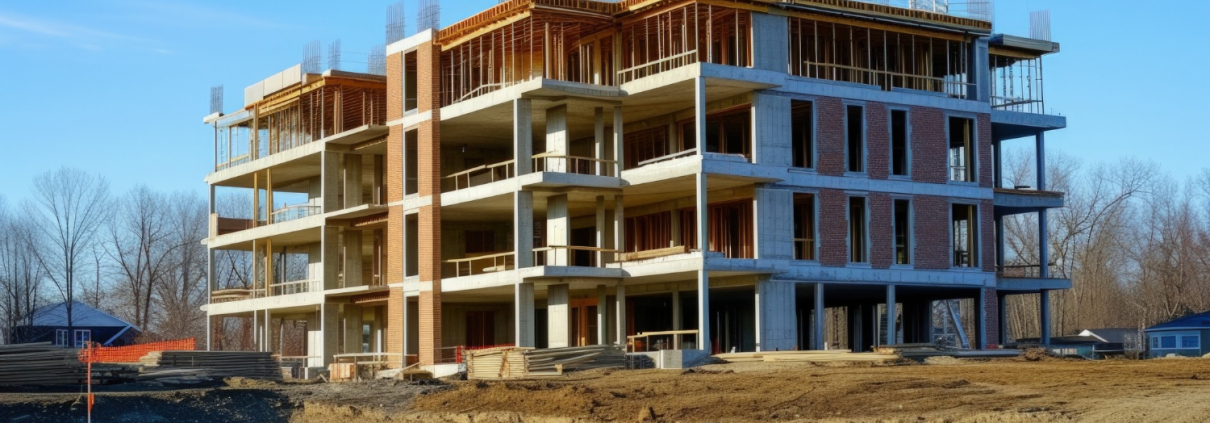Modular Magic: The Benefits of Prefabricated Construction
Prefabricated construction, often referred to as modular construction, is transforming the building industry with its innovative approach. By creating sections of a building offsite and then assembling them onsite, this method offers a shift from traditional practices. It’s becoming increasingly popular among commercial builders, especially in regions like Lismore, NSW, where efficiency and adaptability are key.
In recent years, modular construction has gained attention for its ability to meet modern building needs more effectively. With urban areas expanding and the demand for quick and sustainable solutions growing, prefabricated structures offer a compelling option. They help in reducing construction timelines and support environmentally friendly practices, making them suitable for places that value rapid development and environmental consciousness.
What is Prefabricated Construction?
Prefabricated construction involves manufacturing building components in a factory setting before transporting them to the construction site for assembly. This contrasts with traditional methods, where structures are built onsite from the ground up. Prefabrication allows for precision in manufacturing and contributes to an efficient construction process because many variables like weather are controlled within the factory environment.
Prefabricated construction differs from traditional methods in several ways:
– Efficiency: Factory settings allow for continuous work without interruptions from weather or other onsite issues.
– Consistency: Components are made using the same specifications, which enhances quality control.
– Flexibility: Modules can be designed to meet specific requirements and can easily adapt to various building needs.
In commercial buildings, prefabricated elements include wall panels, roof trusses, and even complete room modules. This approach is especially beneficial in regions like Lismore, where commercial builders seek innovative ways to meet building demands swiftly and effectively. Prefabricated construction ensures buildings are up to code while also being quicker to construct.
Key Benefits of Prefabricated Construction
Prefabricated construction offers several advantages, making it an attractive option for modern builders. Here are some key benefits:
– Time Efficiency: Prefabricated construction significantly reduces the time needed to complete a project. Building components are prepared in advance, allowing onsite work to focus solely on assembly.
– Cost-Effectiveness: By streamlining the construction process and minimising onsite labour, prefabrication can help manage budgets efficiently. This reduces the likelihood of unexpected expenses and keeps projects on track financially.
– Quality Control: With components manufactured in a controlled environment, factory settings enhance the reliability and durability of building elements, meeting high-quality standards before they even reach the site.
– Sustainability: Prefabricated methods support eco-friendly practices by reducing waste. Materials are optimised and processes are designed to minimise environmental impact, aligning with the growing demand for green building practices.
These benefits highlight why modular construction is becoming a preferred choice for commercial builders looking to deliver quality projects promptly and sustainably. As Lismore continues to embrace this innovative method, the region stands to gain significantly from faster, more efficient, and environmentally responsible construction solutions.
Practical Applications in Commercial Building
Prefabricated construction brings many advantages that are particularly beneficial for commercial projects, like offices and retail spaces. One standout example of modular construction in action is the creation of pop-up retail shops, which can be assembled quickly to meet the fast-paced retail market’s demands. This approach suits a busy commercial hub, providing flexibility without compromising on quality or design.
Despite the clear benefits, there are challenges that come with using prefab methods. Ensuring that the design and engineering meet local building codes is crucial from the get-go. Collaboration between architects, engineers, and manufacturers is essential to ensure a seamless fit when components arrive onsite. Communication is the key to overcoming these challenges and ensuring the project runs smoothly from start to finish.
Future Trends in Prefabricated Construction
The construction industry is dynamic, and modular methods are set to play an even bigger role in shaping its future. One emerging trend is the increasing integration of smart technology into prefabricated modules. This development not only enhances building functionality but also contributes to energy efficiency and sustainability, aligning with the global push for green initiatives.
Another trend to watch is the use of advanced materials, which when combined with modular construction techniques, can offer even greater durability and lifespan. The future adoption of these methods in places like Lismore looks promising as builders and developers seek more cost-effective and sustainable ways to meet growing demands.
For businesses wanting to keep ahead, they must begin looking into modular strategies. Staying informed about industry innovations and adopting new practices early on will ensure they remain competitive.
Build Smarter, Faster, and Greener: Unlock the Benefits of Modular Construction
As we’ve seen, prefabricated construction offers various benefits that make it a compelling option for commercial projects. From time savings and cost efficiency to enhanced quality control and sustainability, prefabrication addresses several key concerns in today’s construction landscape.
For regions like Lismore, which sees a lot of development and change, the ability to construct buildings swiftly and efficiently is a major advantage. Embracing modular construction can not only improve project outcomes but also contribute positively to the environment, a crucial consideration for future generations.
Discover how modular construction can make your next development smarter and more efficient. Greg Clark Building delivers tailored solutions that combine speed, quality, and sustainability for projects across Lismore. Learn more about how our team supports successful outcomes through commercial builders who understand the value of innovation in every stage of construction.



